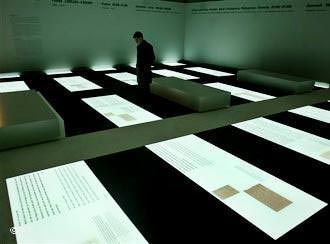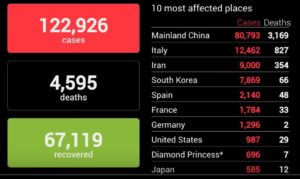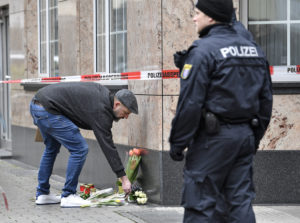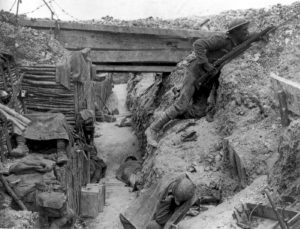Holocaust Archive Tells a Fuller Story
The International Tracing Service, an arm of the Red Cross that houses 16 miles of floor-to-ceiling files related to the Holocaust, is slowly granting access after half a century of silence.
The International Tracing Service, an arm of the Red Cross that houses 16 miles of floor-to-ceiling files related to the Holocaust, is slowly granting access after half a century of silence.
Your support matters…AP via Yahoo!:
BAD AROLSEN, Germany — The 21-year-old Russian sat before a clerk of the U.S. Army Judge Advocate’s office, describing the furnaces at Auschwitz, the Nazi death camp where he had been a prisoner until a few weeks previously.
“I saw with my own eyes how thousands of Jews were gassed daily and thrown by the hundreds into pits where Jews were burning,” he said.
“I saw how little children were killed with sticks and thrown into the fire,” he continued. Blood flowed in gutters, and “Jews were thrown in and died there”; more were taken off trucks and cast alive into the flames.
Today the Holocaust is known in dense and painful detail. Yet the young Russian’s words leap off the faded, onionskin page with a rawness that transports the reader back to April 1945, when World War II was still raging and the world still knew little about gas chambers, genocide and the Final Solution.
The two pages of testimony, in a file randomly plucked off a shelf, are among millions of documents held by the International Tracing Service, or ITS, an arm of the International Committee of the Red Cross.
This vast archive — 16 miles of files in six nondescript buildings in a German spa town — contains the fullest records of Nazi persecutions in existence. But because of concerns about the victims’ privacy, the ITS has kept the files closed to the public for half a century, doling out information in minimal amounts to survivors or their descendants on a strict need-to-know basis.
This policy, which has generated much ill-feeling among Holocaust survivors and researchers, is about to change.
Independent journalism is under threat and overshadowed by heavily funded mainstream media.
You can help level the playing field. Become a member.
Your tax-deductible contribution keeps us digging beneath the headlines to give you thought-provoking, investigative reporting and analysis that unearths what's really happening- without compromise.
Give today to support our courageous, independent journalists.






You need to be a supporter to comment.
There are currently no responses to this article.
Be the first to respond.